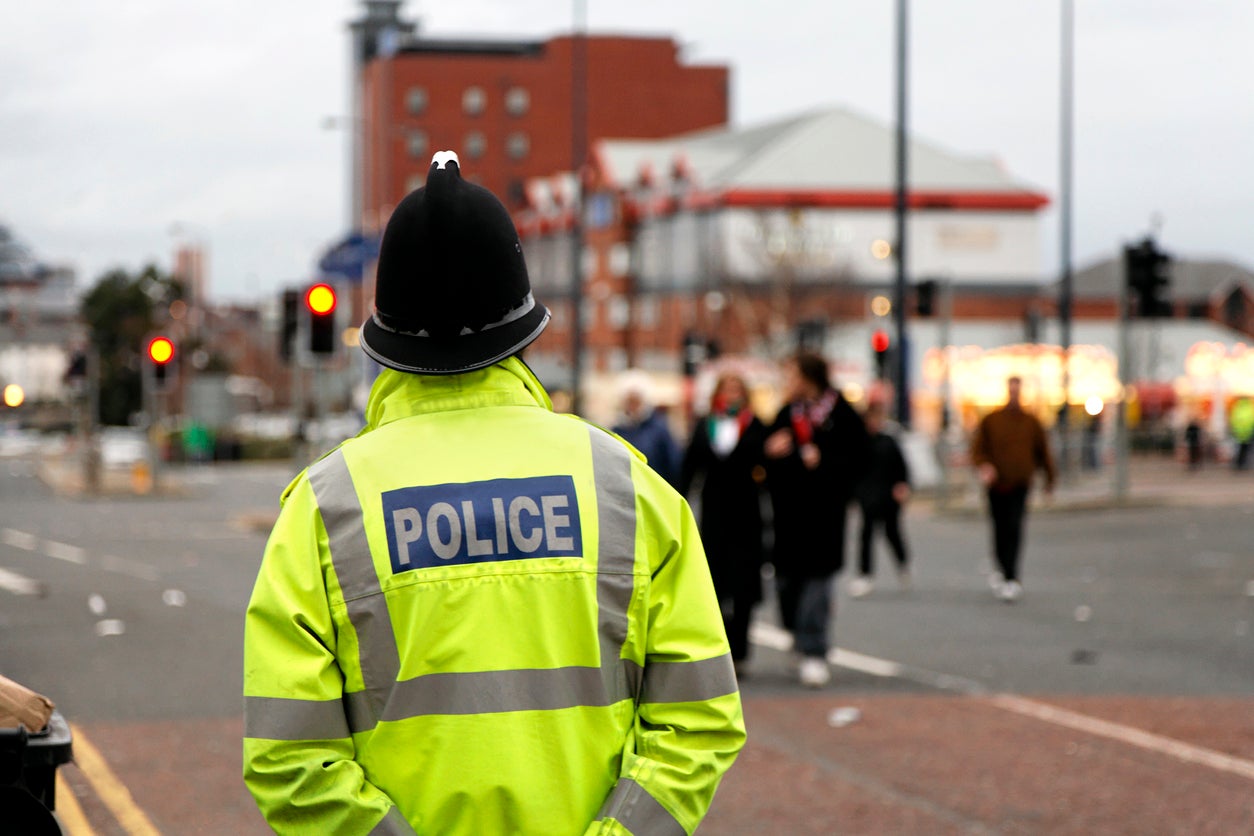Priti Patel’s plans for tackling violence against women are absurd
Placing the responsibility for tackling such a gargantuan task with an underfunded police service that is barely fit for purpose, is a grave misstep indeed


Your support helps us to tell the story
From reproductive rights to climate change to Big Tech, The Independent is on the ground when the story is developing. Whether it's investigating the financials of Elon Musk's pro-Trump PAC or producing our latest documentary, 'The A Word', which shines a light on the American women fighting for reproductive rights, we know how important it is to parse out the facts from the messaging.
At such a critical moment in US history, we need reporters on the ground. Your donation allows us to keep sending journalists to speak to both sides of the story.
The Independent is trusted by Americans across the entire political spectrum. And unlike many other quality news outlets, we choose not to lock Americans out of our reporting and analysis with paywalls. We believe quality journalism should be available to everyone, paid for by those who can afford it.
Your support makes all the difference.Priti Patel has announced a raft of measures as part of a new Violence Against Women and Girls (VAWG) strategy that promises to deliver a “radical programme of change”.
As is customary for the home secretary, the police remain at the heart of these “solutions”, with proposals including the appointment of a dedicated police officer in charge of tackling violence against women, the introduction of a new online tool that allows users to pinpoint public spaces they have felt unsafe or suffered harassment in, and the creation of a new Ministry of Justice helpline for victims of rape and sexual assault.
The news comes just days after victims commissioner Dame Vera Baird told The Independent that women’s faith in police is at rock bottom and that “police are not dealing with abusers in their own ranks,” she said, adding: “This wipes out women’s faith in them being willing to tackle sexual violence and domestic abuse.”
Commenting on the current state of UK rape convictions, where prosecutions have plummeted to an all-time low of 1.6 per cent, she said: “Last year, I warned that we were witnessing the effective decriminalisation of rape. Nothing in the past year has swayed me from that perspective. The uncomfortable truth is that if you are raped in Britain today, your chances of seeing justice are slim.”
And a recent Channel 4 investigation which found that one woman every week reports a police officer for seriously abusing them or their child raises further questions about the suitability of the police in tackling the epidemic of violence against women.
Women from ethnic minority backgrounds, trans and queer people, sex workers, travellers, refugees and undocumented women have long known that the state is a source of fear and mistrust, rather than a place of sanctuary.
Long before Sarah Everard’s tragic death at the hands of a serving Metropolitan Police officer, and the devastating selfies taken by police next to the dead bodies of Bibaa Henry and Nicola Smallman, vast swathes of the population perceived the police with suspicion, rather than conviction.
Expecting such people to feel confident in reporting their experiences of sexual violence to a government helpline run by the Ministry of Justice is absurd. The decision to even propose such a helpline seems mystifying when existing services, staffed by experienced specialists, such as Rape Crisis, already exist.
As an ex-hate crime advocate who used to advise victims of LGBTQ+ hate crime to report their experiences to police, I became despondent when reports were frequently NFA’d (no further action taken) due to “a lack of evidence” or witnesses.
Expecting police officers – many of whom feel under siege after a public backlash following heavy-handed policing at Everard’s vigil and Black Lives Matter protests in 2020 – to treat reports of gender violence with the care and sensitivity they deserve seems risky at best.
Concern about the police’s ability to handle such matters is so severe that the Centre for Women’s Justice has brought a “super-complaint” involving 15 forces about their handling of domestic abuse, rape and stalking cases against serving officers. “At the heart of the concerns is lack of integrity, of officers manipulating the system and acting in bad faith in a variety of ways,” it states.
And it’s not just outsiders, either. In March, former chief constable of Nottinghamshire Police Susannah Fish described a “toxic culture of sexism” in significant parts of policing, adding that she would think “very carefully” about reporting a crime committed against her because of how she would be “judged”.
A more thoughtful approach to what a successful and satisfying final outcome might look like for women and girls who have been victimised, particularly when reflecting on the extremely low rates of conviction for crimes primarily perpetrated against women, is long overdue.
Fines, community sentences and prison continue to be positioned as the natural punishment for perpetrators, but the evidence consistently fails to back up this approach. A 2019 report by the Prison Reform Trust reveals that nearly half of adults (48 per cent) are reconvicted of another offence within a year of release from prison. The remaining 52 per cent who don’t return to prison should not necessarily be seen as a success story.
While many women may baulk at the suggestion of pouring money into perpetrator programmes, angry and entitled men are going nowhere. Imprisoning perpetrators is a temporary solution to a much larger issue; expecting these men to emerge transformed is simply unrealistic.
Investment is urgently required into preventative and interventionist strategies that address the ideas and attitudes of men that develop into misogynistic behaviour. While this shouldn’t come at the expense of vital services for women and girls, tackling problematic ideas around entitlement and dominance is critical in raising a new generation with more enlightened ideas around gender.
While the criminal justice system continues to offer little resembling justice for women experiencing violence, Patel’s proposals appear as mere window dressing and lack a robust attempt to dismantle the misogyny inherent in almost all aspects of our culture. But placing the responsibility for tackling such a gargantuan task with an underfunded police service that is barely fit for purpose, is a grave misstep indeed.
Join our commenting forum
Join thought-provoking conversations, follow other Independent readers and see their replies
Comments